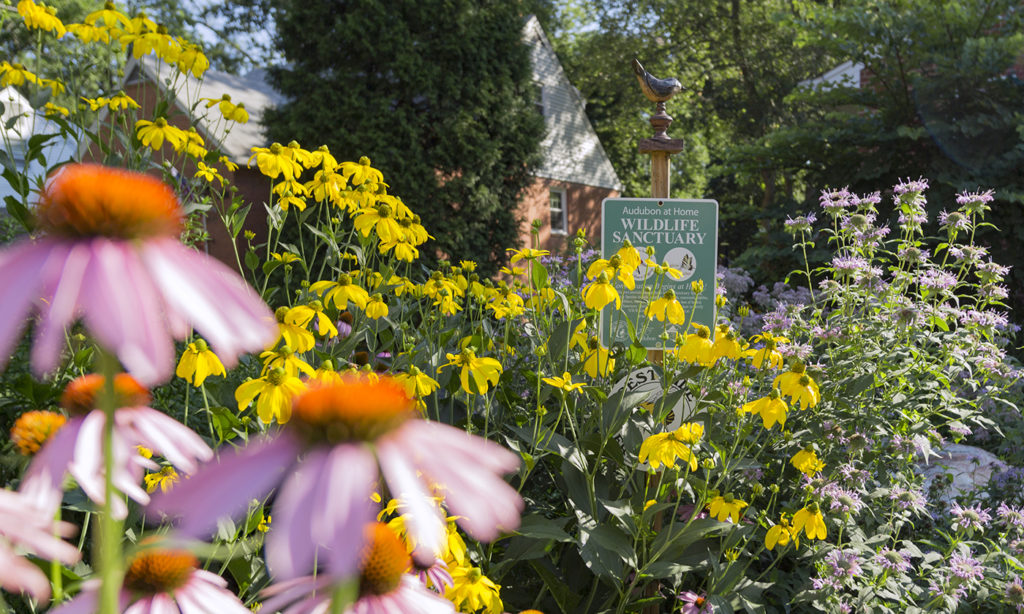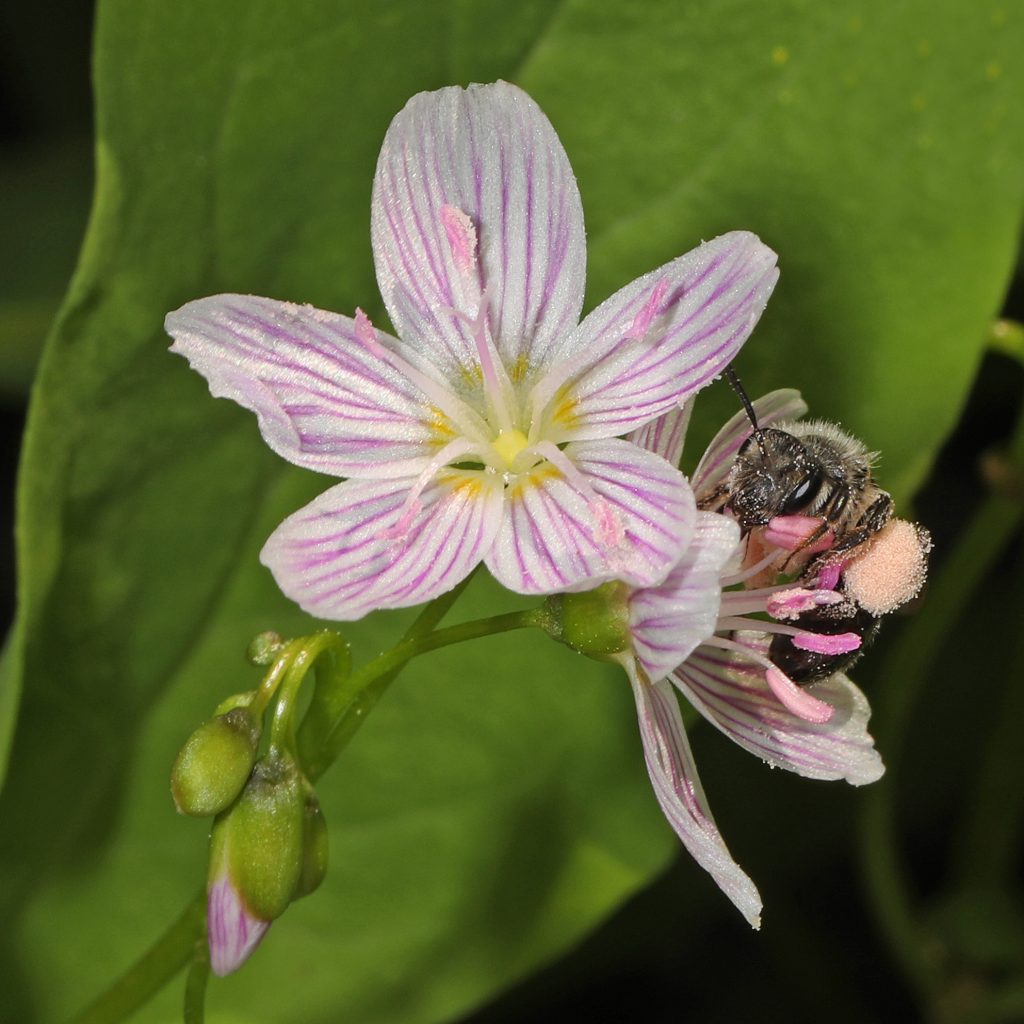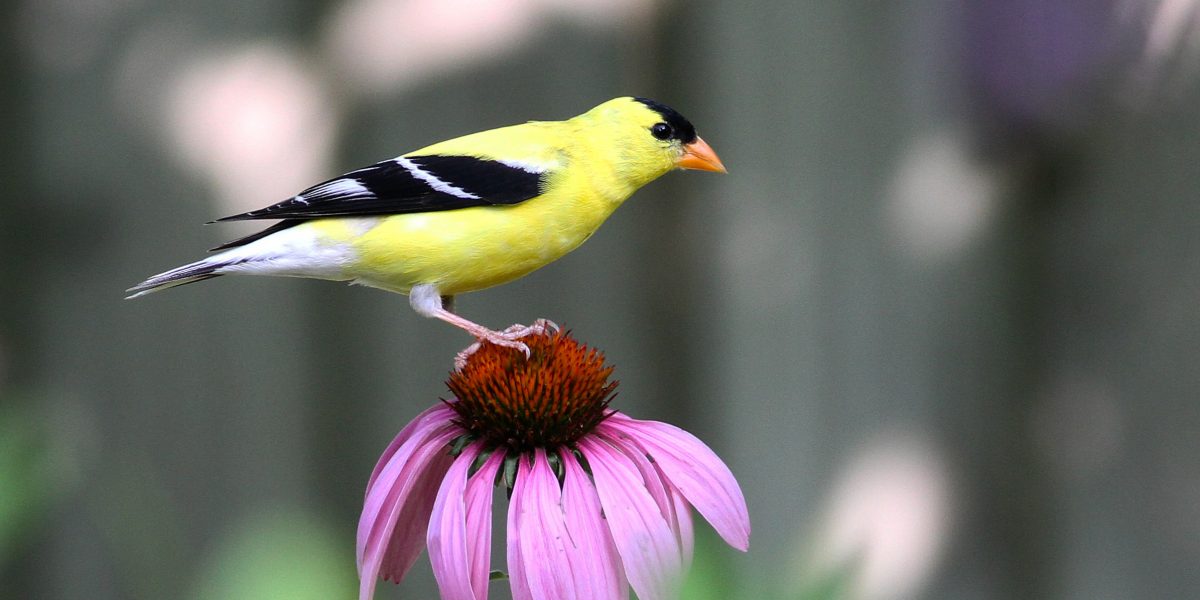Our 2021 Ecoprint calendar, Protecting the Natural Beauty of the Chesapeake Bay, has given us the opportunity to work with 13 different organizations, all dedicated to helping solve the environmental challenges in this important ecological hub. April features the Audubon Society of Northern Virginia (ASNV), an organization that works to protect the future of biodiversity and wildlife in the Northern Virginia area.
After years of expansion and wholesale replacement of natural spaces with lawns and ornamental landscaping, bird populations are declining. A comprehensive study in 2019 found that bird populations have decreased by nearly a third over the last 50 years. Many bird species are vital to their ecosystems; they control pests, disperse seeds, and pollinate flowers among other things.
To help restore safe ecosystems for birds and other wildlife, the Audubon Society of Northern Virginia created the Audubon at Home program. ASNV partners with local volunteer conservationists, gardeners and naturalists to help property owners and managers establish sustainable habitats for both wildlife and native plant species right in their backyards.

Oftentimes, homeowners choose plants for their looks rather than their role in the local ecosystem, to disastrous effect. A single oak tree, for example, supports 534 species of caterpillars. Many of these caterpillars turn into butterflies, which are important pollinators. They also serve as a source of food for birds. By comparison, a ginkgo tree, which is not native to this area, supports just one species of caterpillar.
Through programs like Audubon at Home, the Audubon Society of Northern Virginia has positioned both amateur and professional gardeners as critical players in wildlife protection and management. The program relies on volunteer Ambassadors. These trained Master Naturalists and Master Gardeners conduct on-site visits and provide personalized advice on habitats and native plants to property owners during the certification process to become a registered Wildlife Sanctuary. To date, the Audubon at Home program has certified 771 properties on over 7,093 acres.

The contributions of dedicated volunteers and staff have played a vital role in the growth and development of ASNV and programs like Audubon at Home. By addressing major issues like habitat degradation, invasive plant species, and adverse effects of urban development, the Audubon Society of Northern Virginia is taking an active role in protecting not only birds and other wildlife but the integrity of our entire local ecosystem.
Sustainably,
Bobby Firestein
P.S. To learn more about our 2021 Calendars as well as our environmental contributors, click here.
Audubon Society of Northern Virginia
Mission
Audubon Society of Northern Virginia (ASNV) is a chapter of National Audubon Society and committed to its mission: to conserve and restore natural ecosystems, focusing on birds, other wildlife, and their habitats for the benefit of humanity and the earth’s biological diversity. As the largest independent National Audubon Society chapter, ASNV has more than 4,500 members. ASNV advances the mission through education programs, citizen science, and advocacy initiatives.
ASNV’s education programs offer workshops and classes on a variety of birding and other natural history topics while the Audubon at Home program encourages home and other landowners to create wildlife friendly habitat on their properties.
Research conducted in partnership with other conservation organizations and land managers contributes to our knowledge of bird and wildlife populations in Northern Virginia and provides effective stewardship of their habitats.
ASNV’s advocacy efforts address issues impacting wildlife, habitats, and ecosystems by influencing public policies and private practices.
History
Formed in 1905, the National Association of Audubon Societies focused on the protection of birds, wildlife, and their habitats. Today’s National Audubon Society and a broad network of state and local chapters —including the Audubon Society of Northern Virginia—remain committed to addressing environmental problems ranging in scale from neighborhood to global. The heart of the Audubon effort has always been in helping individuals make a difference in their communities.

